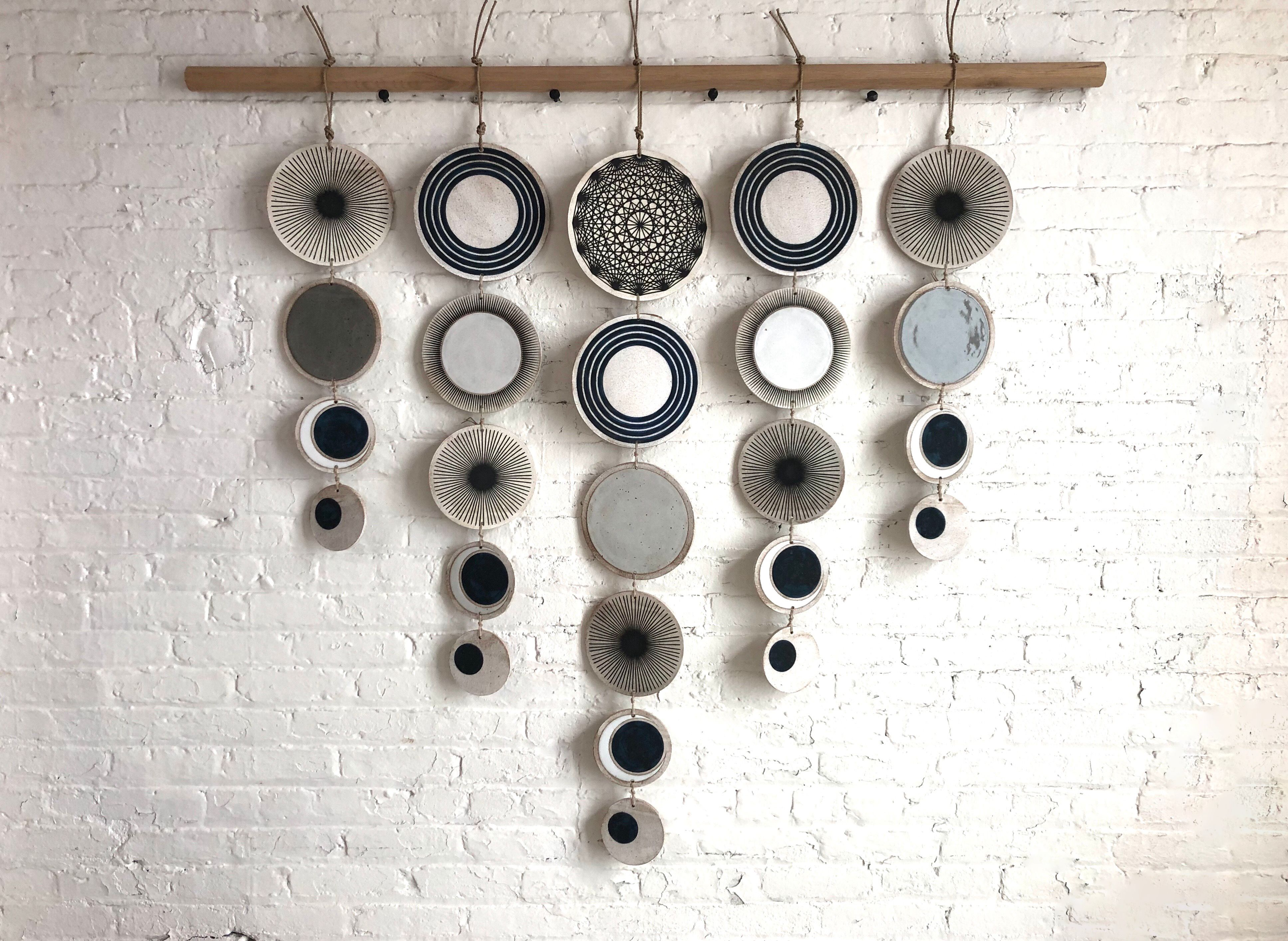PORTRAITS, VOL 1
MICHELE QUAN
Mackenzie Reed
APORTA Shop ambassador, writer, maker
We sat down for a virtual and socially distant chat with Michele Quan of NYC based MQuan Studios to talk about her work, her inspiration, and how Covid has changed things for her. Michele is a talented ceramicist who makes pieces for the home and garden. She finds herself returning to ideas of impermanence and interconnection, drawing inspiration from the teachings of Buddhism and its visual language. APORTA Shop carries a collection of indoor/outdoor wall hangings that feature eye imagery and evoke a sense of wonder and wanderlust. We also have a variety of bells that are adorned with stars and celestial bodies that are a perfect addition to any space, classic or modern, maximal or minimal.

AS: Give us a little background about how you started MQuan Studios and how you started your brand?
MQ: I don’t really think of my work as a ‘brand’. Not sure why. I get the idea, but it just doesn’t ring true to who I am and how I feel about what I do.
Summer of 2003 I left my jewelry company of twelve years and gave birth to my daughter in November. Two years later, wracked with what to do next in my life I decided to take a ceramics class. Just to start working with my hands and get some flow going.
Well, the ceramic bug got me and one class lead to 2, then 3 and then to renting a studio in Williamsburg Brooklyn. I called it Macho Studios. No heat or AC, water downstairs, a stinky forklift always running, a kiln that would stall near the end and take at least 4 hours too many to get to temperature. I was there for fours year and loved it. The second studio, which I am still in till the end of 2021, I named Princess Studios because it had heat, AC, drain in the floor to hose down all the clay dust, beautiful light and is in a quiet residential neighborhood. And the kiln fires off by 7 or 8pm. Sweetness.
Now, I’m transitioning to my studio upstate NY which is a dream come true. Sometime in 2001 I had worked with a life coach and dreamt of making ceramics in the country with a garden, compost, and trees. It was one of those if you could do anything, bar nothing exercises solely based on a daydream from a single throwing class I took in 1991.

AS: What designers and/or artists have inspired you historically? Recently?
MQ: I cannot narrow that down, but I recently watched a documentary called Leaning into the wind about Andy Goldsworthy, and the documentary Pina by Wim Wenders. Both beautiful and inspiring.
"Covid has magnified the appreciation of community that I feel."

AS: How do you feel that Covid-19 has impacted your practice? Have there been any upsides? How do you think the world of small business/hand crafted goods has been altered?
MQ: My 3-year upstate NY studio plan morphed into a 3-month plan. Covid caused me to re- evaluate how & what I make, limited by how I can NOT make things during these times.
I’ve always given my limitations their respect and due, embraced them. In my work limitations are a part of what I make and keep me focused. But this is a whole new set of limitations. 2020 was terrifying and illuminating. The world is in a huge very loud flux. So much to confront, and we cannot look away anymore. Not from ourselves or from the world. Deeply rooted racism, the destruction of our natural planet, our crumbling infrastructure, the baselessness of our economy. I could wax on.
Covid has magnified the appreciation of community that I feel.

AS: How are you practicing sustainability in your work?
MQ: I’ve always used starch peanuts but hated my dependency on packing with bubble wrap. A couple of years ago, I made a commitment to use as little bubble wrap as I could. I was afraid to try something else. Shipping ceramics is not easy. I switched to corrugated cardboard and I’m proud to say I use 90% less bubble wrap than I did 2 years ago.
I also take bisqueware that is not perfect and stamp it ‘MQ No Waste’, paint it, fire it and offer it at a lower price. Once clay turns into bisqueware, it’s on the earth for the long haul. So I hated throwing it in the dumpster.
AS: What is a social issue/cause that is near and dear to you and your work?
MQ: Homelessness, hunger, racism, taking care of our elders, animal cruelty, the environment. But not just these. All of them.
AS: Interconnection is an integral part of your work and something that you return to often. How has Covid changed your understanding and definition of the word? How has that impacted your craft and your relationship with your work?
MQ: Community feels ever present.
AS: Is there a particular form or image that you’ve been drawn to lately?
MQ: The Spiral and the Black Snake. Rocks and more rocks.
AS: What’s been something you’ve been incredibly proud of in the last year? Gotta have a little good with your pandemic, ya know!
MQ: I’m grateful and honored to have been able to raise money and bring any kind of awareness to help others in need with the work that I love to make.








